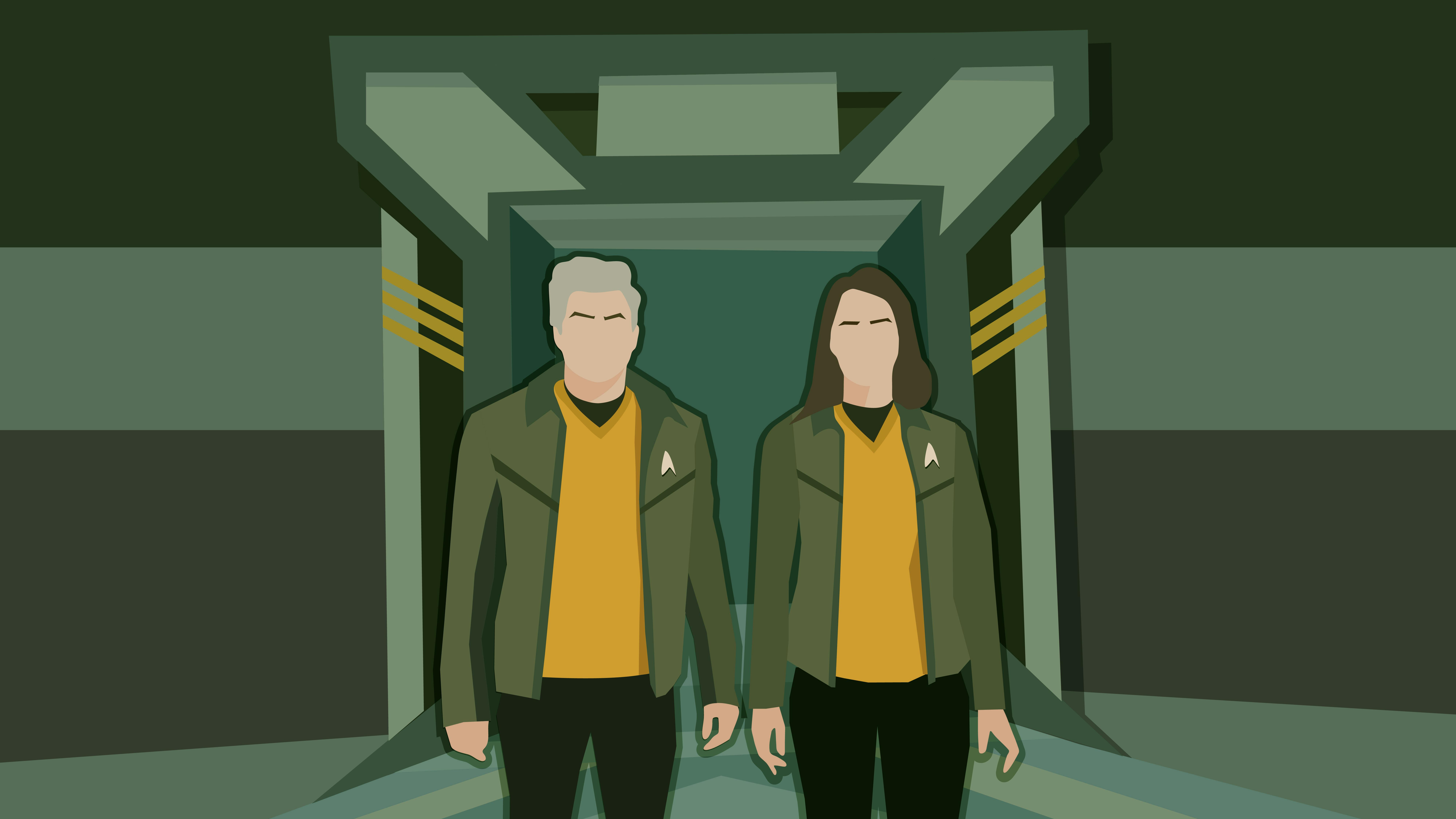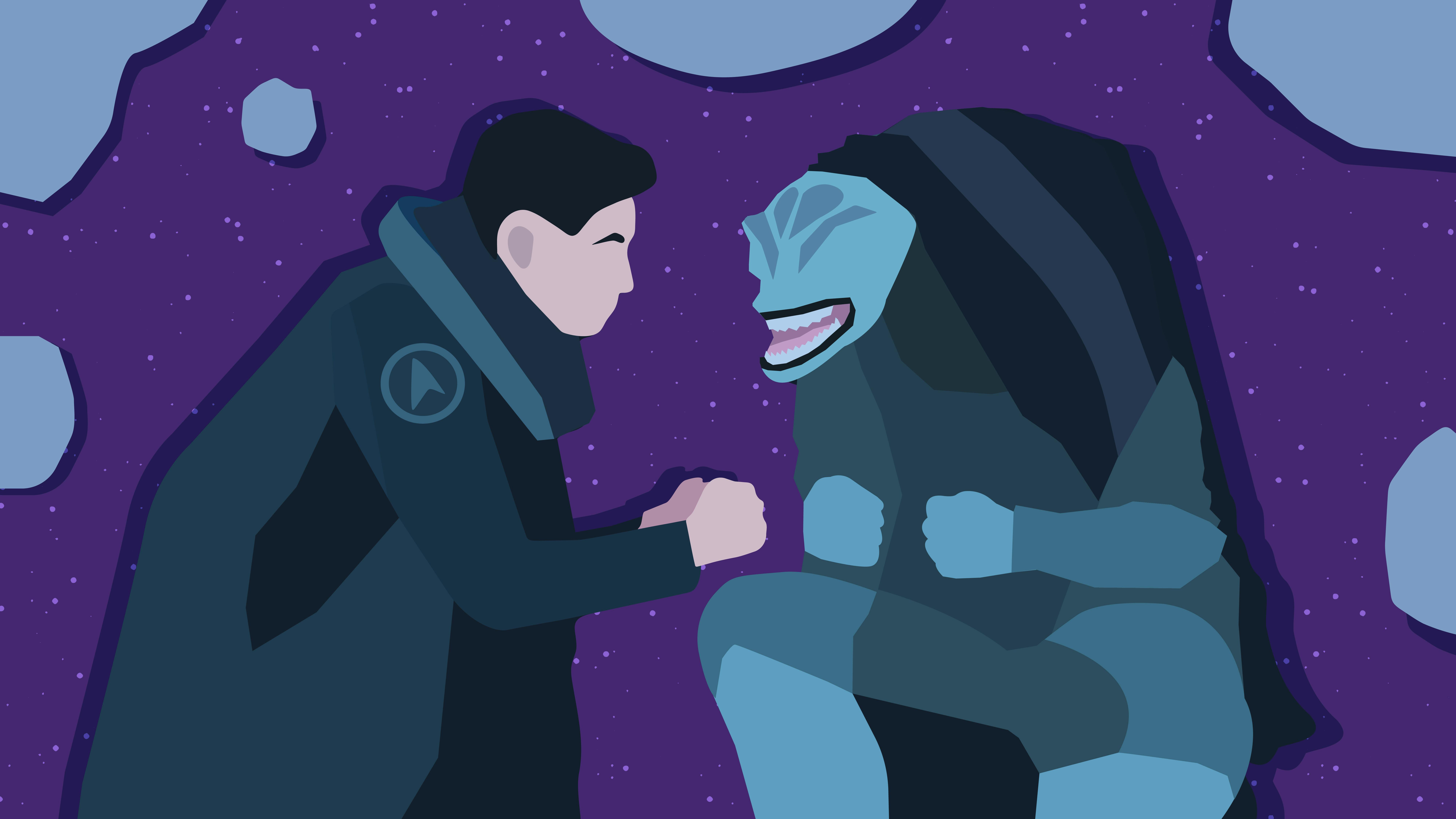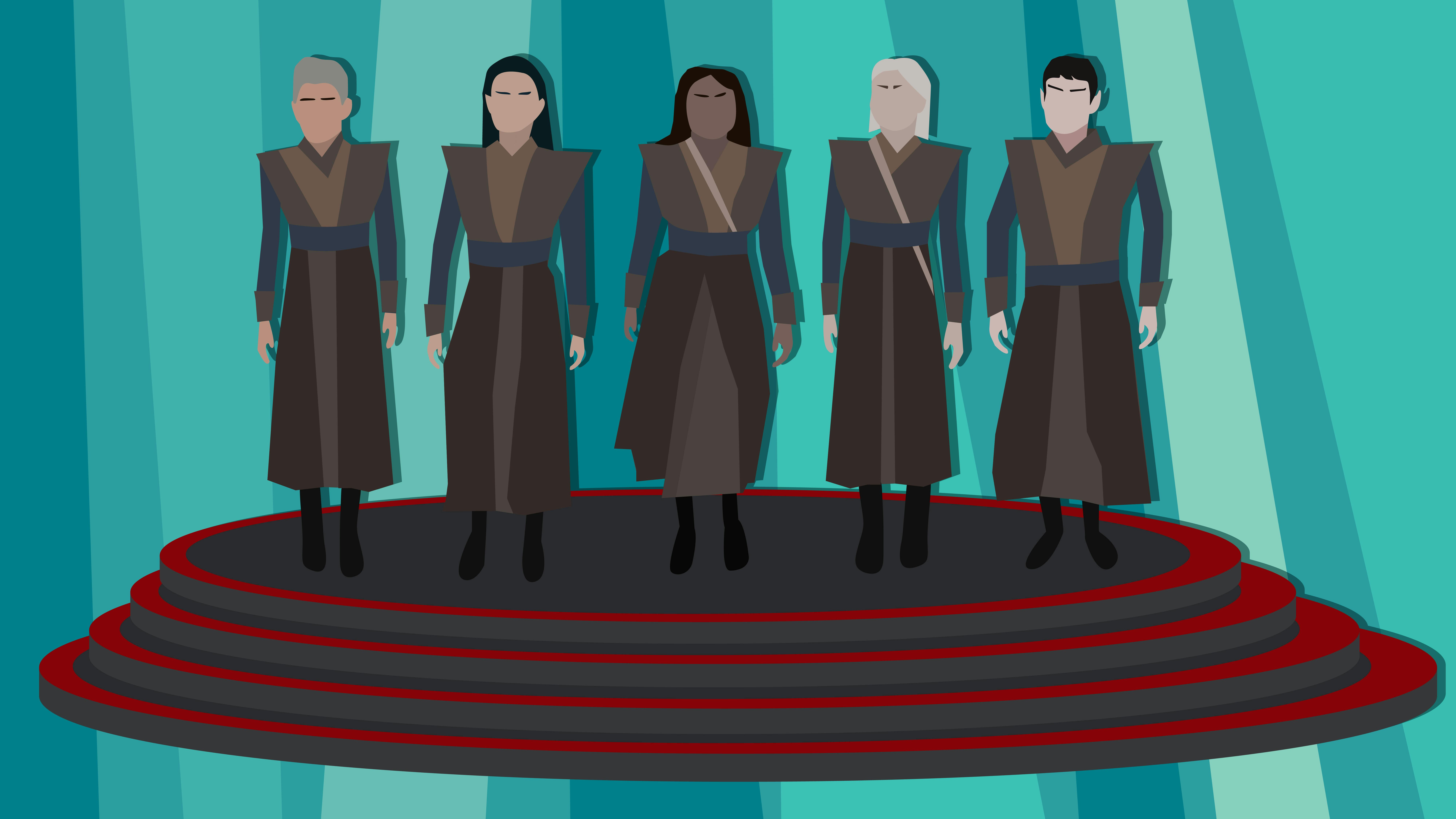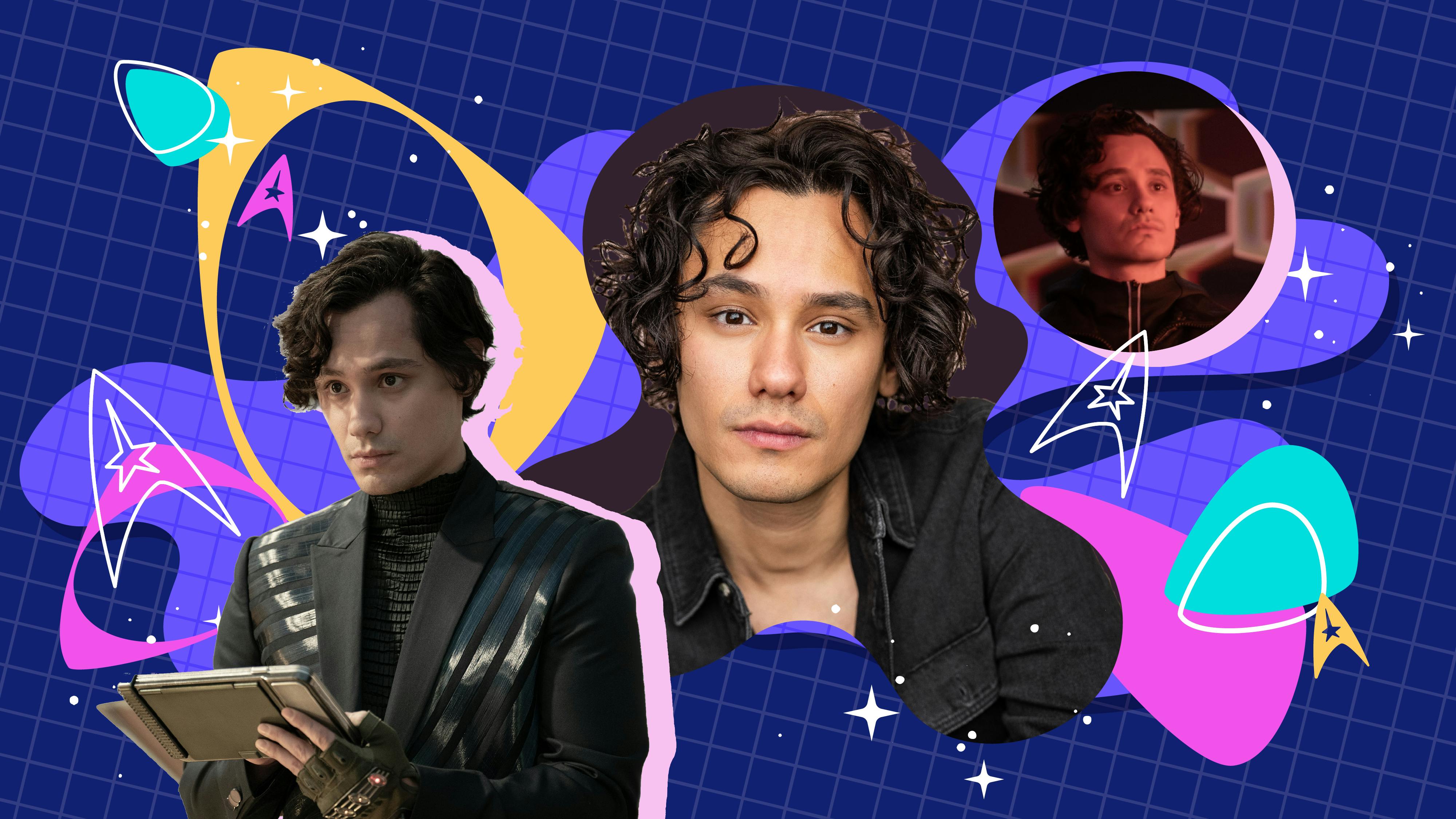Published Jan 23, 2025
A 19th Century Philosopher's Clues to Picard's 24th Century Journey
Captain Rios' Kierkegaard was more than just a set dressing.
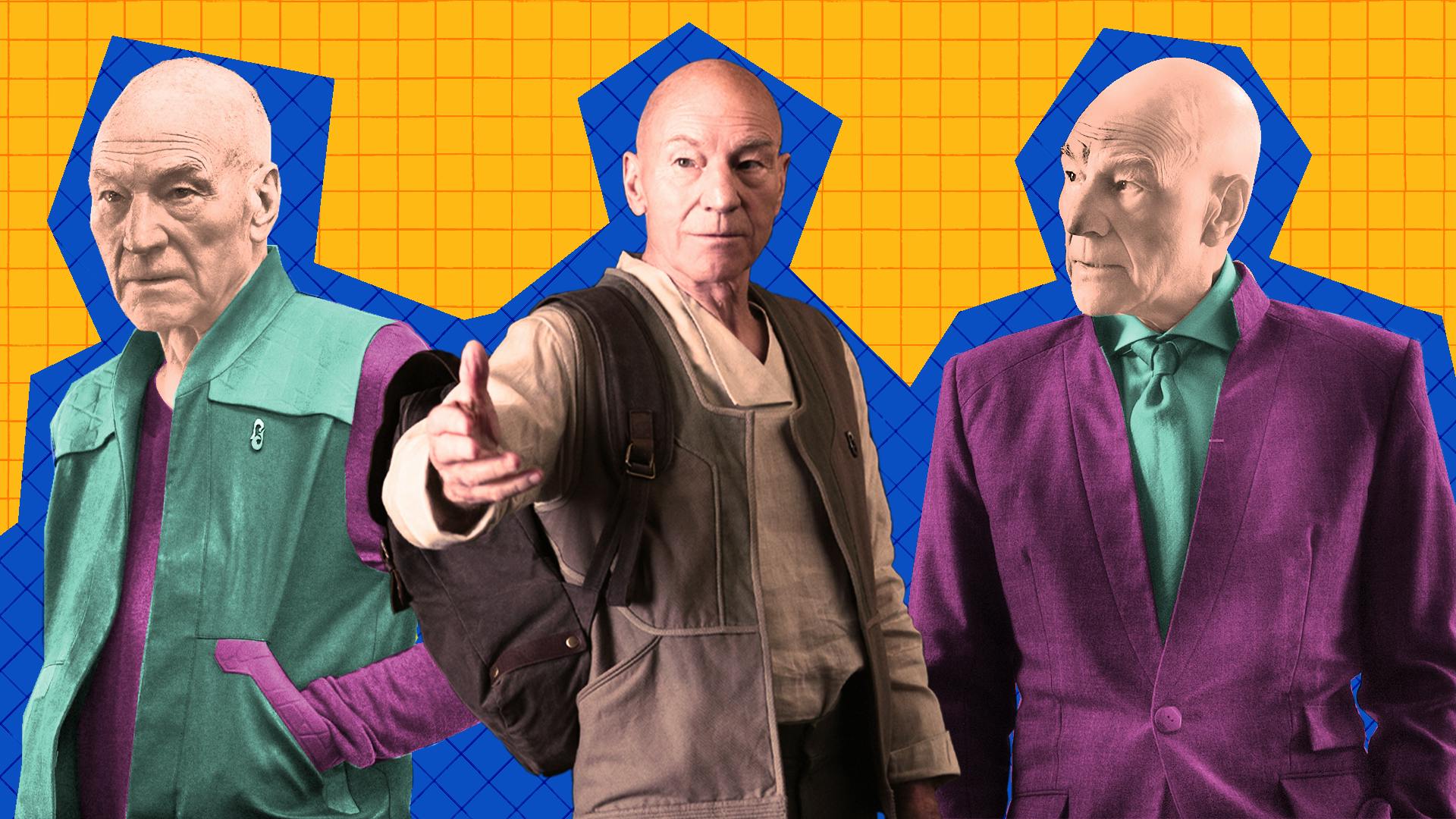
StarTrek.com
The first duty of every Starfleet officer is to the truth, whether it's scientific truth, or historical truth, or personal truth! It is the guiding principle on which Starfleet is based.
Jean-Luc Picard, "The First Duty"
This is the essence of Captain Jean-Luc Picard. He used these very words to reprimand Cadet Crusher in episode, "." This speech marks one of his most direct rebukes of a subordinate and it has understandably become one of his most famous — and for good reason. Picard's words summon our responsibility to the truth.
I've been watching Star Trek my entire life. As I transitioned from adolescence into adulthood, the richness of the franchise became more clear. At its best, Star Trek holds a mirror up to the world and asks us to evaluate ourselves — our truths — as we watch our favorite characters navigate similar situations in a fictionalized future. Star Trek never withholds exploring the varied moral and societal implications of its stories. Throughout these moral complexities, Captain Picard is the bastion of duty. We've seen him navigate and make the hard moral decisions on countless occasions. Yet when we meet him again in , he seems to have forgotten his duty to the personal truth. Unanchored and adrift from his true self, he is unable to flourish. This is not the Picard we know.
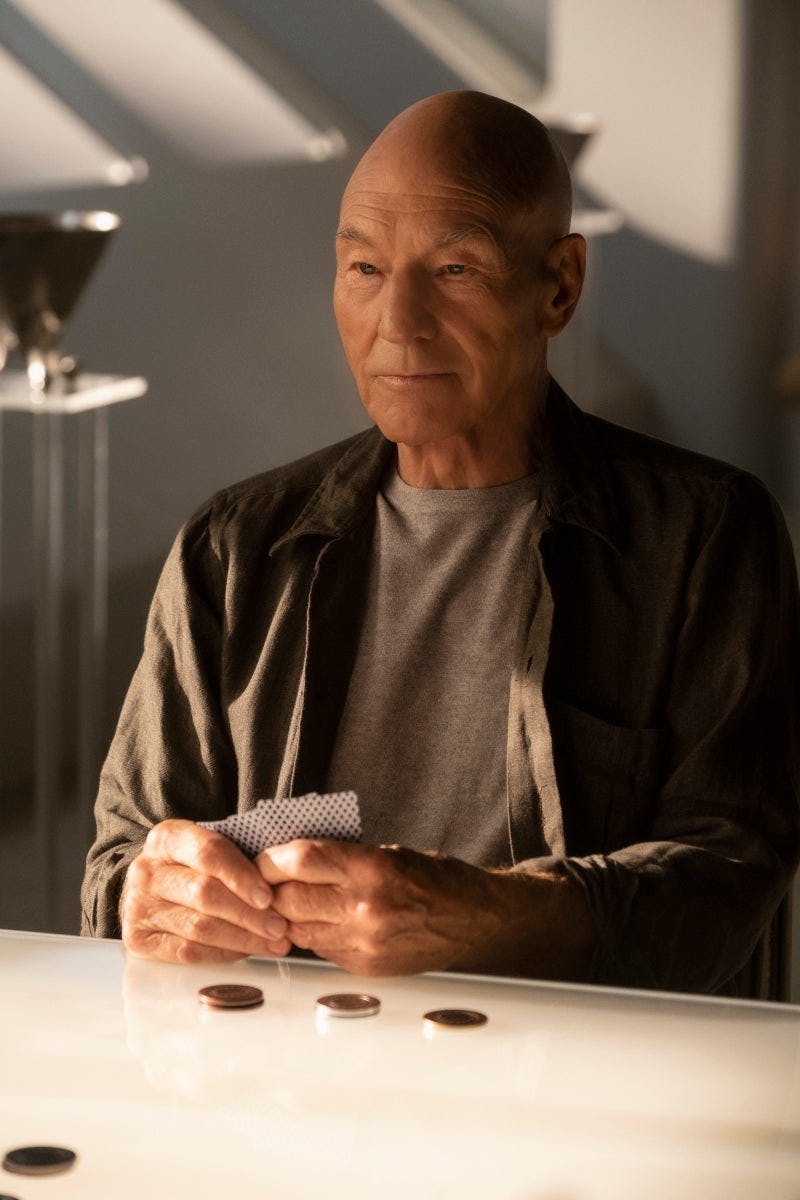
"Remembrance"
StarTrek.com
As someone interested in existentialism, the deeply personal and introspective look at the character of Picard in Star Trek: Picard interested me most, and in my view, it is one of the new show's greatest achievements. Picard spent its entire first season focused on a specific character's journey. In terms of Picard's character, the show made our esteemed hero relatable in ways we had not previously seen.
In the episode "," we get a glimpse into Captain Cristóbal Rios' character by way of the small library in his quarters. The camera pans for a moment, pausing on several books, including a few by existential philosopher, Søren Kierkegaard. One book in particular, The Sickness Unto Death, helps us understand Picard's journey in the new series, and provides clues to what themes are important to his character.
The Sickness Unto Death outlines Kierkegaard's view of despair. At a high level, despair occurs when an individual fails to be oneself or is in anguish over who one truly is. This is the sickness from which the book's title derives its name. Unlike a physical sickness, despair is a sickness of spirit, of who one is. Despair does not cause a physical death. To the contrary, despair torments a person indefinitely, and restricts them from living a full life. We see this clearly when Picard vocalizes his despair, "I haven't been living. I've been waiting to die." To Kierkegaard, one can be conscious or unconscious of one's own despair, but those who are conscious can be particularly daunting, as they live out of an acute sense of loss. We meet Picard in this very state in the series premiere, "."
In the years since he left command of the Enterprise, Picard has isolated himself at his family vineyard, kept company by only a few select individuals. He's distraught. And two subsequent events force him to look at his past self that he has long since abandoned — his reluctant interview with the Federation news and his meeting with Dahj.
Dahj, in her own identity crisis, asks Picard if he's ever felt like a stranger to himself, to which he replies, "many, many times." Picard is keenly aware of his present state.

"Broken Pieces"
StarTrek.com
Even after Picard assembles his new crew and embarks on his mission to look for Dahj's sister, Soji, his command pales in comparison to that of his Enterprise days. Removed from the Enterprise and his trusted, longstanding officers, he struggles to thrive. He is still Picard, but more a shadow of his former self. His failure to be himself all these years alone on the vineyard compromise aspects of his decision making and collaboration. He has forgotten his responsibility to the personal truth — the very one that he lectured Wesley about all those years ago.
Not all is lost, however. If despair is a sickness, as Kierkegaard says, then there ought to be some cure. But Kierkegaard can be perplexing. There is no scientific cure for despair like a prescription medication for a physical illness. Instead, discovering self is a journey, an effort. To overcome despair, our task is to move in the direction that ultimately points us toward who we really are, and who we are to be. The task is to find oneself, or become oneself. Kierkegaard clarifies this point when he says, "If the self does not become itself, it is in despair." Picard, thankfully, is not alone on this endeavor.
Picard has historically sought fulfillment living among the stars, exploring, and being a diplomat. While these are external accomplishments, they stem forth from who Picard is. As he embarks on his mission to find Soji, a series of events unfold that help Picard reclaim who he is to be. When signs point to Soji being on the reclaimed Borg cube, Picard pursues the lead reluctantly. His traumatic experience with the Borg invokes harsh memories. His identity was at one point stolen, and he is rightly hesitant to face the Borg again. Yet on the cube, Picard is reunited with Hugh, another former Borg. While helping Picard, Hugh reminds Picard that he is far more than the trauma he experienced. "You are Jean-Luc Picard," Hugh affirms as Picard finds himself unbalanced and distraught amongst the Borg.
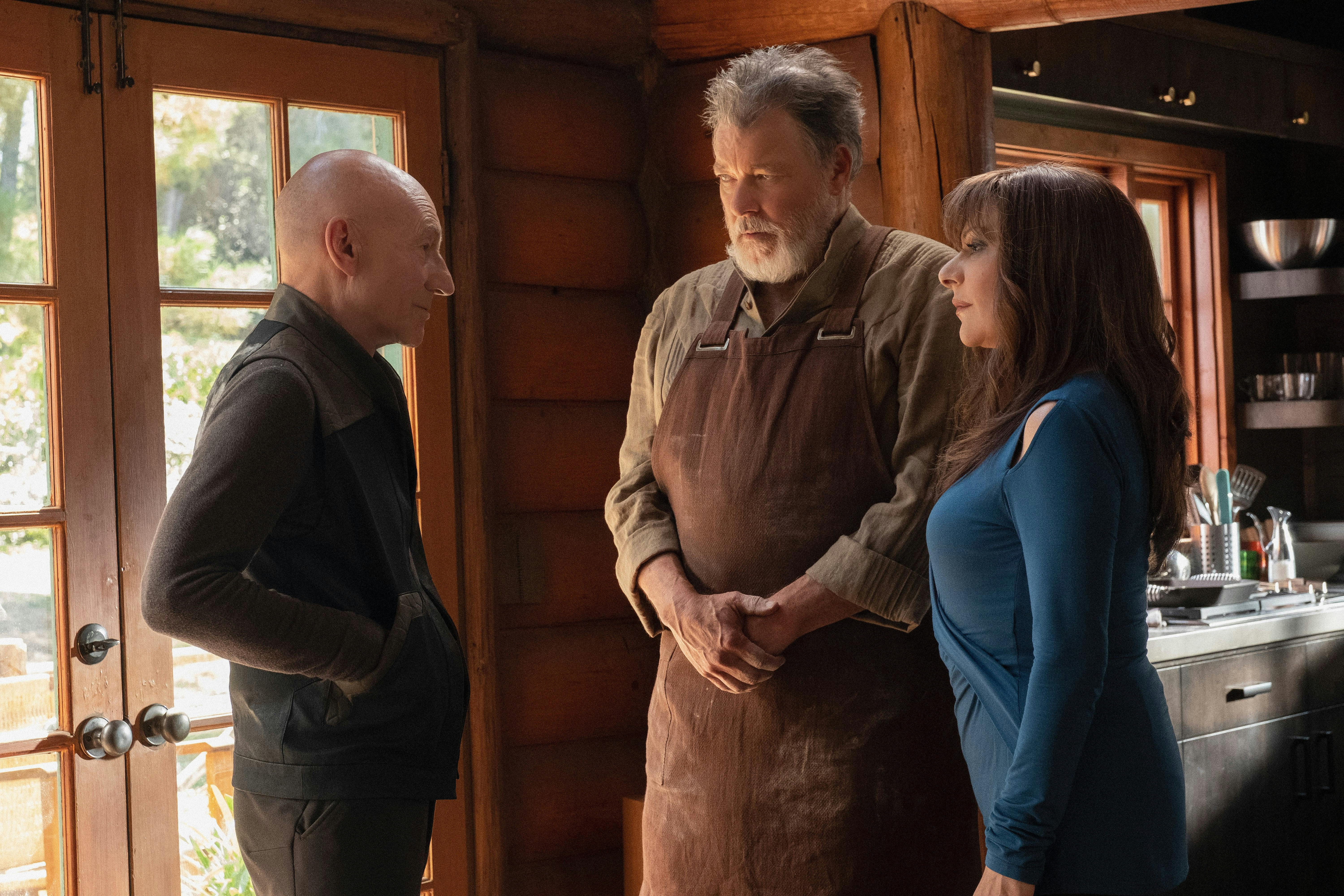
"Nepenthe"
StarTrek.com
As Hugh helps Picard and Soji escape Romulan pursuit, they wind up on , where Will and Deanna Troi-Riker reside. It's here, amongst lifelong friends and comrades, that Picard pauses and reclaims himself. But he doesn't do so with grace at the onset. Instead of learning and empathizing with Soji, in a moment of trauma, he responds brashly. Soji dismisses him, leaving Picard stunned by her anger. Yet Troi, his long-term confidant, calls him out. No longer tethered to ranks and Starfleet decorum, Troi confronts Picard directly because she sees that his actions are not representative of who he truly is.
"You need to be Jean-Luc Picard," Troi says in a moment of immediate clarity and grounding. Picard sinks into those words, and Troi then reminds him of what it means to be Jean-Luc Picard — "Compassionate, patient, curious." As the layers of despair are slowly being removed. Picard can see his true self again.
When Picard returns to space on board La Sirena to complete his mission, he assumes command at long last. He has vision. He has regained confidence. Following Troi's guidance, Picard takes on the role of a mentor to his new crew, particularly Soji. In a scene that illuminates Soji's self-discovery, the conversation centered on Data is likewise a mirror for Picard. Soji wants to know how Data would remember Picard. Here, Picard is forced to look inward, to grapple with his own sense of self and vocalize what makes him be Picard. Picard recognizes that his very essence is relational. He sees the potential in people. He’s a counselor, a sounding board. He champions the success of others, assists them only when needed, but otherwise allows them to flourish. And in the process, Picard shines. He flourishes. With this realization, Picard starts doing with the La Sirena crew that which he did so expertly with his Enterprise crew. As Picard reclaims himself, he moved Picard forward, as a character and as a series.
In the last moments of “Broken Pieces," Picard and Rios share a moment from their pasts. They reflect on former comrades and lessons learned that have shaped them. In the end, Picard reminds Rios that "the past is written, but the future is left for us to write." He goes on to say, "And we have powerful tools, Rios: openness, optimism, and the spirit of curiosity." That vision stems forth from a healthy sense of self.
In this rare moment of time when the entire world is shuttered due to the coronavirus pandemic, as we all deal with varying levels of loss, perhaps the invitation is for us too to pause and look inward. As we embark on the path forward out of this dark moment in our shared history, we too are equipped with those same tools that Picard and Rios discussed. Yet in order to actualize a better future, we ourselves need to be healthy. Take some time in your own personal ready room to reconnect with the power and presence of your truth. From that place, let us engage on our mission: To be ourselves, and champion those around us. It's our duty to our personal truth that launches us into a better tomorrow.
Jean-Luc Picard Isn't A Sci-Fi Fan

